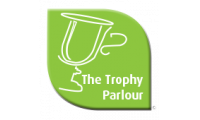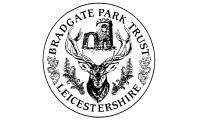Role of the Coroner
Following the death of a loved one the Coroner does not wish to be perceived as heartless or distant from the bereaving family. As part of this, within Leicester, the family is asked how they wish the Coroner to refer to the person who has died.This is usually by their full or family name.
This article relates strongly to someone who has died as a result of SADS and so can be young; therefore the person who has died will be referred to as 'the child' rather than the more impersonal term 'the deceased' which is often seen in many legal documents.
It is acknowledged that SADS is not restricted to deaths in children, but can strike from the ages 12 - 35.
The Investigation Process
When a death is reported to the Coroner, if (s)he considers it is a natural cause of death and there is no other reason to investigate further and/or hold an inquest, the Coroner's officer will speak with the family to confirm they understand the death and do not dispute the cause of death. The Coroner will then send the necessary paperwork to the Registrar and instruct the reporting doctor to issue the 'Medical Certificate Certifying Death'. The Coroner will not be involved further.
If the cause of death is unknown the Coroner will request a post-mortem examination of your child. The Coroner's Officer will speak to you, ask you some brief details about your child and obtain information that will assist the Coroner and Pathologist. You will be told when and there the post mortem examination will take place and your right to have a doctor who treated your child in life to be present at the examination. This will be at your own expense and the doctor is not allowed to interfere with the examination.
The post mortem will be carried out the next working day or as soon as possible thereafter.
If a natural cause of death is established at the post mortem examination and there are no reasons for the Coroner to investigate further or hold an inquest, the Coroner's Officer will notify you of this. The Coroner will instruct the release of your child to your nominated undertakers and send the necessary paperwork to the Registrar. This will usually be the same day as the examination or as soon as reasonably practicable thereafter.
If the post mortem examination does not reveal a cause of death and further tests are required you will be notified what the tests are on the day of the examination and the nature of the tests. At the same time, you will be asked what your wishes are in relation to the tissue samples after they have been tested. You will be sent the necessary paperwork to complete, sign and return to the Coroner. If the further tests are histology and/or toxicology, your child can still usually be released to your nominated funeral directors following the post mortem examination. If any organs are needed for further tests you will be told which organs, and for how long they are likely to be retained. You will then be asked whether you wish the organs to be re-united with your child before release to you, or whether you wish to proceed with the funeral and make alternative arrangements for the retained organs. The Coroner's Officer will discuss all of the options with you.
If after the further tests have been completed (which may take up to six months), the post mortem examination reveals a natural cause of death, the Coroner's Officer will notify you of this ad the Coroner will complete the necessary paperwork for the Registrar. If the organs have been retained and your wishes were for them to be re-united before the release of your child, the Coroner will instruct the Pathologist of this and your child will then be released to your nominated undertaker. The Coroner will not be involved further.
If the cause of death is unnatural or remains unknown, the Coroner will open an inquest. If your child has not been released to you previously, the Coroner will instruct this now. The Coroner's Officer will notify you of the date of the opening.
The Inquest Process
A brief guide to the inquest process following the opening of the inquest.
The inquest will be opened and adjourned for investigations to be conducted and reports to be prepared. Where reasonably practicable to do so the Coroner will set a final hearing date within six months of the date of death.
The Coroner will review progress in the matter on a regular basis and all interested persons will be informed of decisions made at each review. Reviews are not public hearings and no information arising from them will be made public. They will not be listed on the Coroner's website.
There are some cases that take a considerable amount of time to enquire into.
All files are monitored regularly to ensure that all appropriate steps are taken and that delays are kept to a minimum. All those properly interested will be notified of the progress of the Coroner's investigations and the steps being taken.
As soon as the Coroner is ready to hear the Inquest the Coroner's Officer will contact the interested persons to notify them of the date and time fixed for the hearing and the listing details will be published on the website.
Pre-Inquest Review
If the inquest is complex, reports are not forthcoming, or it appears that the adjournment is continuing for too long, the Coroner will fix a date when all interested persons including the family of the child and any legal representatives will be required to attend court for a formal hearing. This will be a public hearing.
At a pre-inquest review, the Coroner will deal with any outstanding matters and will give such further directions as are necessary to prepare the case for a final hearing.
Usually the Coroner, in conjunction with the family and legal representatives will, at the pre-inquest review, decide upon the scope of the inquest, the evidence to be hear and the witnesses to be called at the final hearing.
The date for the final hearing will usually be set at this pre-inquest review. All interested persons will receive written confirmation of the date and this will be publicised on the website.
Any properly interested person who wishes to inspect or receive copies of any statements or document to be considered at the Inquest may apply to the Coroner.
Final Hearing
This is the resumption of the adjourned Inquest and is a public hearing.
When interested persons arrive at court, they will be shown around the court and given an explanation of what is to happen.
Generally all witnesses will be in court during the inquest.
The child's family and all other properly interested persons will have the opportunity to give evidence and to ask questions of the witnesses who are called.
The Coroner will hear all the evidence and then make the findings of fact that are required; (s)he will announce their conclusion about the death (their 'determination' previously known as 'the verdict').
After the Inquest
On conclusion of the inquest the next of kin will be provided with an explanation about how, where and when a copy of the death certificate may be obtained. If the next of kin is not present a written explanation will be sent via post.
If in the interest of preventing further fatalities the Coroner decides to report the matter to a relevant person or authority, (s)he will do so within ten working days of the inquest outcome. (S)he will also send copies of their letter to all interested persons. A copy of any subsequent reply will be sent within five days of its receipt.
The Coroner will supply to an interested person, on application, a copy of the inquest verdict or any of the statements or documents produced in evidence within ten working days of the receipt of the prescribed fee (which will vary according to the number and size of documents to be copied). An estimate of the fee will be provided in advance if requested.
The Coroner will write to the Pathologist instructing him/her to follow the instructions regarding retained tissue (if any) given by the family when the Inquest was opened.

































































